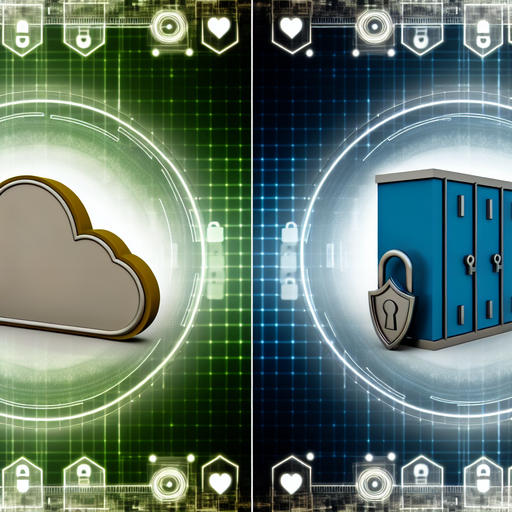Nextcloud and Security Management: Ensuring Your Data’s Safety
In the digital age, security management is paramount for businesses and individuals alike. Nextcloud, an open-source, self-hosted cloud storage service, offers robust security management features to safeguard your data. From encrypted storage to secure file sharing and comprehensive access controls, Nextcloud prioritizes your peace of mind when it comes to data security. This article explores how Nextcloud and security management work together to create a secure digital environment.
What is Nextcloud?
Nextcloud is a comprehensive, self-hosted cloud solution that enables users to store, manage, and share files securely. As an open-source platform, Nextcloud offers the flexibility individuals and organizations need to customize their cloud experience while maintaining control over their data. Whether you are looking for private cloud storage or secure file sharing capabilities, Nextcloud is designed to meet these needs with unmatched efficiency.
Get Nextcloud with 1 TB of storage for just up to €3.99 per month.
Try it now for one month free and risk-free.
The Importance of Security Management in Cloud Services
Security management is crucial in cloud services for several reasons. With increasing cyber threats and data breaches, ensuring that sensitive information is protected is more important than ever. Security management in cloud services like Nextcloud allows you to:
- Protect sensitive data from unauthorized access.
- Ensure compliance with data protection regulations.
- Maintain the integrity and availability of data.
- Reduce the risk of data breaches and cyber-attacks.
Features of Nextcloud Security Management
Data Encryption
One of the standout features of Nextcloud’s security management is data encryption. Nextcloud provides both server-side and client-side encryption to ensure that your files are secure at rest and in transit. Server-side encryption encrypts files stored on the server, while client-side encryption offers end-to-end encryption, meaning that only the end users holding the encryption keys can access the content.
Two-Factor Authentication (2FA)
Nextcloud supports two-factor authentication (2FA), adding an extra layer of security to user accounts. 2FA requires users to provide two forms of identification before accessing their accounts, typically a password and a code sent to their mobile device. This significantly reduces the risk of unauthorized access.
Access Control and Permissions
With Nextcloud, you have fine-grained control over who can access your files and what they can do with them. You can set permissions for users and groups, specifying whether they can view, edit, share, or delete files. This ensures that sensitive information is only accessible to authorized individuals.
Secure File Sharing
Sharing files with Nextcloud is not only convenient but also secure. Nextcloud allows you to share files with password protection, set expiration dates for shared links, and restrict downloads. These features help maintain control over shared content and ensure that it does not fall into the wrong hands.
User Activity and Audit Logs
Nextcloud keeps a detailed log of user activity, which can be invaluable for security management. Audit logs track actions like file access, modifications, and sharing, providing visibility into user behavior. This information helps you identify and respond to suspicious activity promptly.
Nextcloud Apps for Enhanced Security Management
In addition to its core security features, Nextcloud offers a range of apps designed to enhance security management further:
Password Policy
The Password Policy app allows administrators to enforce strong password policies within Nextcloud. You can set password complexity requirements, mandate regular password changes, and prevent the reuse of old passwords, ensuring that all users maintain strong security practices.
File Access Control
The File Access Control app lets administrators set rules that restrict file access based on specific criteria. For example, you can block access from untrusted IP addresses or prevent access during certain times. This additional layer of control helps protect your data from unauthorized access.
Brute Force Protection
To guard against brute force attacks, Nextcloud includes an app specifically designed for this purpose. The Brute Force Protection app detects and blocks suspicious login attempts, reducing the risk of unauthorized access through repeated guessing of passwords.
End-to-End Encryption
As mentioned earlier, client-side or end-to-end encryption is a critical feature for maintaining data privacy. The End-to-End Encryption app provides advanced encryption capabilities, ensuring that only the intended recipient can decrypt and read the files.
Implementing Nextcloud Security Management
Implementing Nextcloud’s security management features is a straightforward process, though it requires careful planning and configuration. Here’s a step-by-step guide to getting started:
Step 1: Install Nextcloud
The first step is to install Nextcloud on your server. You can download the latest version of Nextcloud from the official website and follow the installation instructions. Ensure that your server meets the necessary requirements and that you have a stable and secure environment for the installation.
Step 2: Configure Security Settings
Once Nextcloud is installed, it’s crucial to configure the various security settings. Start with enabling data encryption, setting up two-factor authentication, and configuring access controls. Be sure to explore all available security features and apps to maximize your security posture.
Step 3: Monitor User Activity
Keep an eye on user activity through audit logs. Regularly review these logs to identify any unusual or suspicious behavior. Monitoring user activity helps you stay proactive in your security management efforts.
Step 4: Educate Users
Security management is not solely the responsibility of administrators; users play a critical role as well. Educate your users about security best practices, such as using strong passwords, recognizing phishing attempts, and following your organization’s security policies. Conduct regular training sessions to keep everyone informed and vigilant.
Step 5: Keep Nextcloud Updated
Ensuring that your Nextcloud instance is updated to the latest version is vital for maintaining security. New updates often include security patches and enhancements that protect against the latest threats. Regularly check for updates and apply them promptly.
Conclusion
Nextcloud offers a robust and comprehensive security management framework that protects your data from unauthorized access and cyber-attacks. By leveraging its powerful features and apps, you can create a secure and efficient cloud environment that meets your organization’s needs. Whether you are an individual looking for a private cloud solution or a business seeking secure file sharing and data protection, Nextcloud’s focus on security management makes it an excellent choice.
Secure your digital assets with Nextcloud and rest easy knowing that your data is protected by one of the most reliable and secure cloud storage solutions available. Experience the peace of mind that comes with top-notch security management in Nextcloud.

